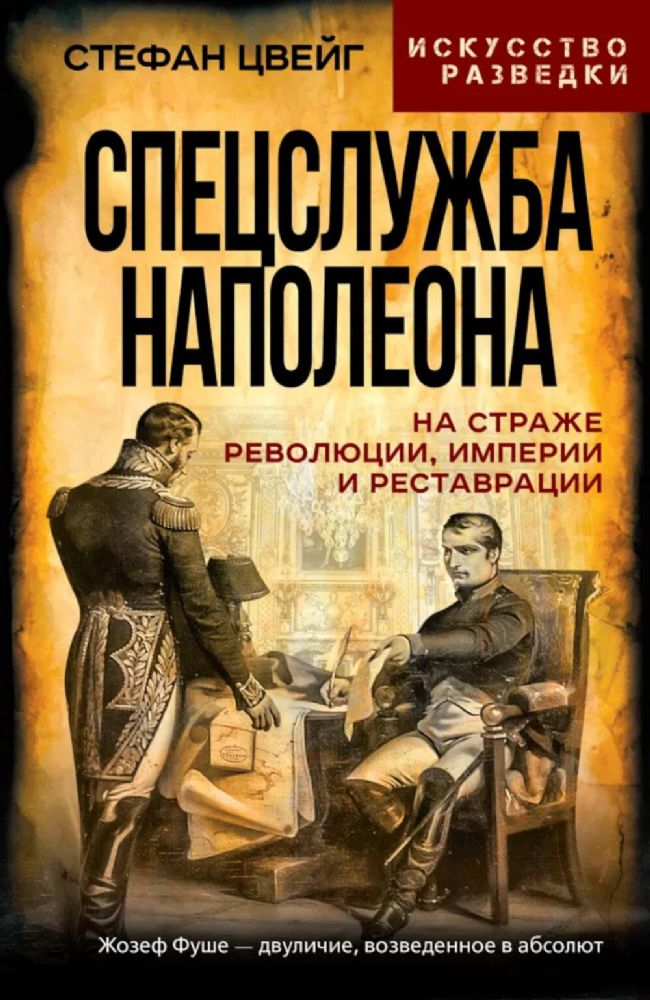Зал ожидания (комп.в 3-х кн.)Трилогия.Успех.Семья Опперман.Изгнание - Фейхтвангер Л.
Zal ozhidaniia (komp.v 3-kh kn.)Trilogiia.Uspekh.Sem'ia Opperman.Izgnanie
Фейхтвангер Л. (Feikhtvanger L.)
Item ID : 1139988
SKU : VV1139988
ISBN : 9785422415267
Pages : 0
Cover : Hardcover
Year : 2019
Publisher : Терра ( Terra )
Данная книга будет отправлена в течение 14-16 дней. Обратите внимание, что ДОПОЛНИТЕЛЬНЫЕ скидки на данную книгу НЕ распространяются.
Фейхтвангер Л. (Feikhtvanger L.)
Item ID : 1139988
SKU : VV1139988
ISBN : 9785422415267
Pages : 0
Cover : Hardcover
Year : 2019
Publisher : Терра ( Terra )
Данная книга будет отправлена в течение 14-16 дней. Обратите внимание, что ДОПОЛНИТЕЛЬНЫЕ скидки на данную книгу НЕ распространяются.
You Pay:
$142.48
shipped in 14-16 days
Краткая аннотация
Классик немецкой литературы Лион Фейхтвангер написал свыше десяти исторических романов и несколько пьес, действие которых происходит в разные эпохи и в разныхстранах. Наряду с этим он создал знаменитую трилогию-эпос «Зал ожидания» на тему современной ему германской действительности первой половины XX века. А действитель-ность эта была суровой. «Я познал… много горя и радости, большие успехи и тяжелые поражения, я пережил преследования гитлеровских лет, изгнание, сожжение и бойкот моихкниг в некоторых странах, Вторую мировую войну, концентрационный лагерь и авантюрный побег, каверзы бюрократии…» – говорил писатель о своей жизни. Эмиграция сталаисторическим периодом жизни целого поколения, периодом, полным своих проблем, коллизий и трагических судеб. Осмыслению этих проблем Лион Фейхтвангер посвятил роман «Изгнание», который, как и романы «Успех» и «Семья Опперман», вошли в цикл «Зал ожидания». Произведения не связаны между собой сюжетно, но объединеныидейно – это своеобразная хроника «коричневой чумы», поразившей Европу в первой половине XX века. Несмотря на сложные темы, поднятые в трилогии, романы чита-ются легко: автор писал просто, но мудро. «Искусство начинается там, где познание сливается с любовью или ненавистью», – говорил Фейхтвангер. Он любил жизнь. И ненавидел зло....
Brief Summary
The classic of German literature Lyon Feichtwanger napi-
s more than ten historical novels and several plays,
the action of which takes place in different eras and in different
countries
.
And the action-
this one was harsh. "I've learned... a lot of grief and joy,
great successes and heavy defeats, I survived the
the success of Hitler's years, exile, burning and boycott of mybooks
books in some countries, world war ii,-
tration camp and adventurous escape, tricks
..." the writer said of his life.
Emigration was a historic period of a generation' life, a period full of its problems, conflicts and tragic fates. "Waiting room." The works are not connected in a plot, but are united ideologically - it is a kind of chronicle of the "brown plague" that hit Europe in the first half of the 20th century. The author describes the failure of the "beer putsch" in Bavaria, Hitler's rise to power in Germany and the half-starved life of German emigrants who escaped persecution in France.
Creating the novel "Success," Lyon Feichtwanger invested in it not only a huge reserve of observations over the life of post-Versailles Germany, but also his reflections on the fate of the capitalist world. the author is transformed into a series of brilliant sketches of the era of general decline, uncertainty in the future and the pursuit of entertainment and pleasure, then in an occasion for harsh reflections on the place of man at the tipping point of the era.
In the novel "The Upperman Family" Feichtwanger traces the tragedy of the country through the tragedy of a Jewish family. their homeland. In the postscript to "Exile," written in 1939, Feichtwanger, referring to the entire anti-Nazi cycle of the Waiting Room, points out that he "very sharply emphasized the ridiculous, anti-reason edgery" that was used to do so. between the arrogance of his leaders and their gifts." Thus, Adolf Hitler, performing in "Success" under the name of Rupert Kutzner, and the entire early, Munich, stage of the Nazi movement are outlined satirically. As a real political force, besides being meaningful in its historical causality, fascism was first brought out in the pages of this novel, which provided the work with a special place in the world literature. Despite the complex themes raised in the trilogy, the novels are easy to read: the author wrote simply, but wisely. "Art begins where cognition merges with love or hate," Feichtwanger said. He loved life. And he hated evil.
s more than ten historical novels and several plays,
the action of which takes place in different eras and in different
countries
.
And the action-
this one was harsh. "I've learned... a lot of grief and joy,
great successes and heavy defeats, I survived the
the success of Hitler's years, exile, burning and boycott of mybooks
books in some countries, world war ii,-
tration camp and adventurous escape, tricks
..." the writer said of his life.
Emigration was a historic period of a generation' life, a period full of its problems, conflicts and tragic fates. "Waiting room." The works are not connected in a plot, but are united ideologically - it is a kind of chronicle of the "brown plague" that hit Europe in the first half of the 20th century. The author describes the failure of the "beer putsch" in Bavaria, Hitler's rise to power in Germany and the half-starved life of German emigrants who escaped persecution in France.
Creating the novel "Success," Lyon Feichtwanger invested in it not only a huge reserve of observations over the life of post-Versailles Germany, but also his reflections on the fate of the capitalist world. the author is transformed into a series of brilliant sketches of the era of general decline, uncertainty in the future and the pursuit of entertainment and pleasure, then in an occasion for harsh reflections on the place of man at the tipping point of the era.
In the novel "The Upperman Family" Feichtwanger traces the tragedy of the country through the tragedy of a Jewish family. their homeland. In the postscript to "Exile," written in 1939, Feichtwanger, referring to the entire anti-Nazi cycle of the Waiting Room, points out that he "very sharply emphasized the ridiculous, anti-reason edgery" that was used to do so. between the arrogance of his leaders and their gifts." Thus, Adolf Hitler, performing in "Success" under the name of Rupert Kutzner, and the entire early, Munich, stage of the Nazi movement are outlined satirically. As a real political force, besides being meaningful in its historical causality, fascism was first brought out in the pages of this novel, which provided the work with a special place in the world literature. Despite the complex themes raised in the trilogy, the novels are easy to read: the author wrote simply, but wisely. "Art begins where cognition merges with love or hate," Feichtwanger said. He loved life. And he hated evil.
Related products
Поиски абсолюта
Poiski absoliuta , Bal'zak Onore deБальзак Оноре де
Item: 1352769
$20.35
shipped in 14-16 days
Изобретение Мореля. План побега. Сон про героев
Izobretenie Morelia. Plan pobega. Son pro geroev , B'oi Kasares Adol'foБьой Касарес Адольфо
Item: 1475297
$24.08
shipped in 14-16 days
Три истории с привидениями
Tri istorii s privideniiami , Mopassan Gi deМопассан Ги де
Item: 1454721
$50.62
shipped in 14-16 days
Шутовской хоровод. Эти опавшие листья
Shutovskoi khorovod. Eti opavshie list'ia , Khaksli OldosХаксли Олдос
Item: 1379996
$27.30
shipped in 14-16 days
Роза и ее братья
Roza i ee brat'ia , Olkott Luiza MeiОлкотт Луиза Мэй
Item: 1437857
$12.41
shipped in 14-16 days
Отель с привидениями и другие истории
Otel' s privideniiami i drugie istorii , Kollinz UilkiКоллинз Уилки
Item: 1375212
$12.40
shipped in 14-16 days
Спецслужба Наполеона. На страже Революции, Империи и Реставрации
Spetssluzhba Napoleona. Na strazhe Revoliutsii, Imperii i Restavratsii , Tsveig StefanЦвейг Стефан
Item: 1497812
$31.96
shipped in 14-16 days









